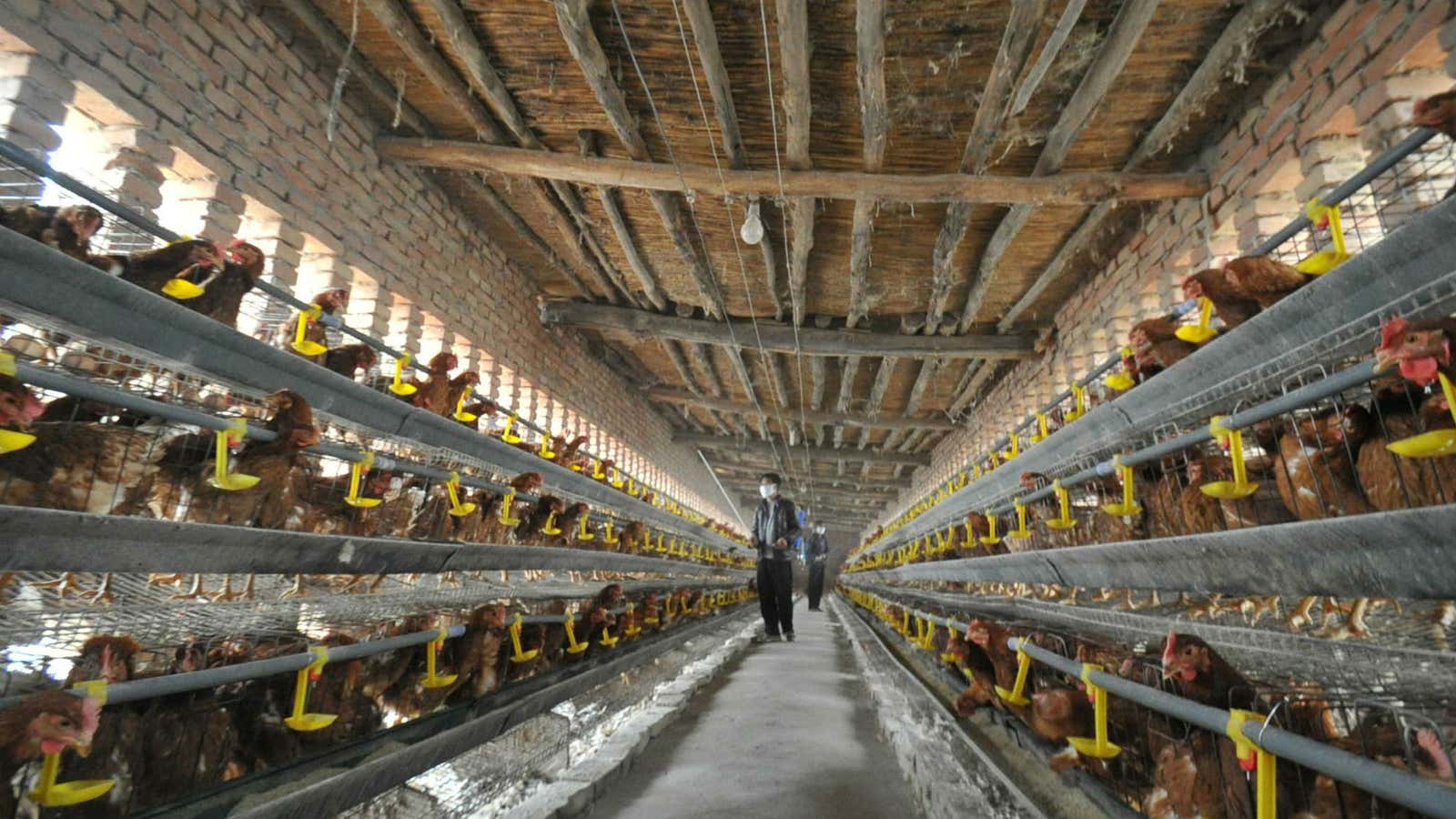Tyson Foods has been spending hundreds of millions of dollars so that it can raise its own chickens in China, instead of buying the birds from contract farmers as it does in many other countries. The reason? It’s becoming more of a viable business strategy to compete on the basis of food safety instead of just cost.
Tyson and other meat suppliers and retailers in China are seizing on the idea that the best way to compete in China is by assuaging widespread worries over the safety and quality of food. For consumers facing a disgusting range of food scandals—from rat meat disguised as lamb to maggot-infested meat to wet markets transmitting bird flu—food safety is increasingly the number one priority when it comes to deciding what’s for dinner.
Food quality is especially vexing in China’s poultry industry, which is dominated by small farmers who liberally use feed additives and antibiotics. Retailers or restaurants often buy from a range of these farms, making it hard to pinpoint farms responsible for questionable batches. (Yum Brands ran into this problem last year, when its KFC restaurants in China were found selling chickens with excessive levels of an antiviral drug.)
To avoid similar public relations crises, Tyson is working on establishing 90 farms in China by 2015, up from its current 20, for chicken destined for supermarkets and restaurants, according to the Wall Street Journal (paywall). Similarly, Chinese poultry supplier Fujian Sunner Development has been working with the Illinois-based OSI Group to develop a supply chain that includes everything from breeding and raising the chickens to running their own feed mills. Separately, last month OSI announced the opening of two new poultry processing plants in China.
Other firms like Thailand’s CP Group and China’s Shandong Nine-Alliance, are also investing in vertical supply chains in China that increase scrutiny of quality, according a report by Rabobank. One of the reasons why China’s largest pork producer Shuanghui Group acquired America’s Smithfield Foods for $4.7 billion earlier this year was to gain access to more sophisticated safety safeguards for pork production.
A race to the top in meat quality would be a welcome change, and one that should have the support of Chinese authorities who have vowed to take food safety more seriously. In March, China announced a consolidation of the country’s fragmented food regulatory structure with the creation of the China Food and Drug Administration. Food safety laws announced last year in Beijing and Shanghai promise to blacklist firms that sell unsafe food or commit other food safety problems.
